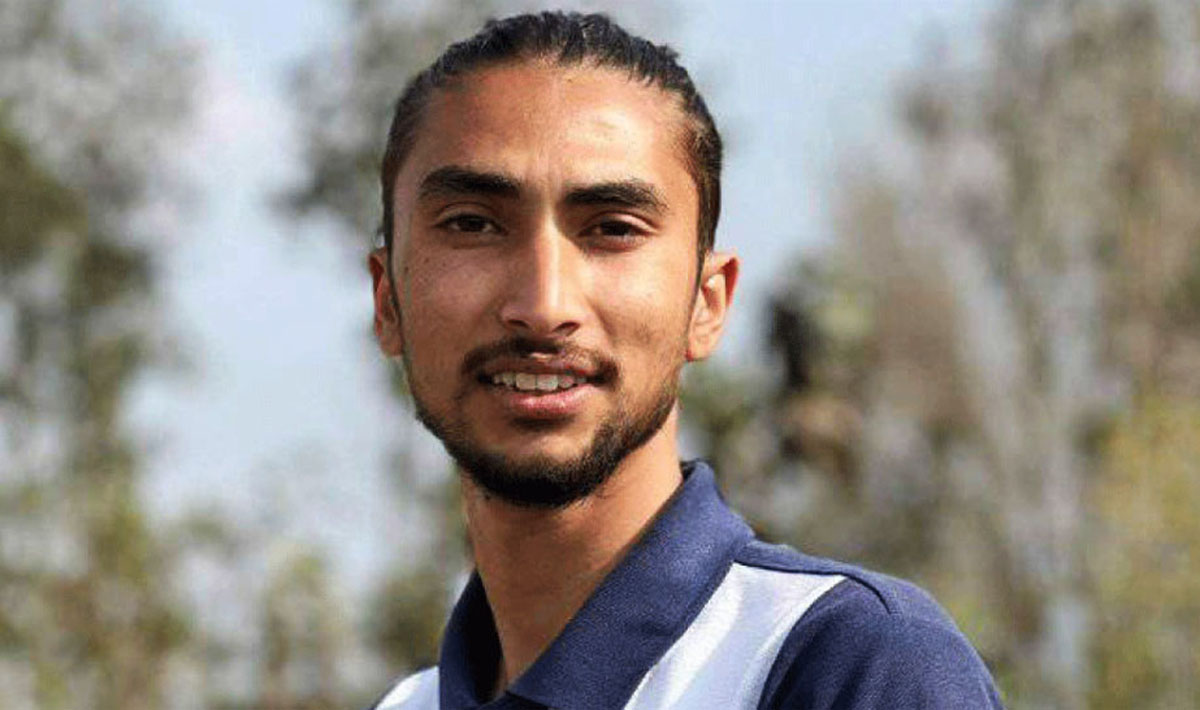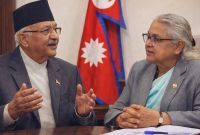Uninvolved Hostage: Why Hamas Holds Nepal's Bipin 575 Days Later Amid Palestine Protests?

For 575 agonizing days, the family of Bipin Joshi has lived a waking nightmare. The young Nepalese agriculture student, who traveled to Israel with dreams of learning and earning, remains a hostage in the war-torn Gaza Strip, a captive of Hamas militants since the devastating cross-border attacks of October 7, 2023. As the world marks yet another grim milestone in his captivity, the question echoes with increasing desperation from his loved ones and supporters: Why is an innocent young man from Nepal, a nation uninvolved in the conflict, still trapped in this geopolitical maelstrom?
Bipin, now believed to be 23 or 24 years old, is the only remaining Nepalese citizen held hostage, a solitary figure representing the plight of foreign nationals unexpectedly swept into the brutal violence. While occasional ceasefires have seen the release of some hostages, and tragic news has confirmed the deaths of others, Bipin's fate remains shrouded in an agonizing silence. There has been no recent proof of life, leaving his family in Nepal's Kailali district suspended between hope and despair.
"Tell everyone to stop the war, release all the hostages – and free Bipin too," was the simple, heart-wrenching message Bipin's cousin recently asked an Israeli scholar, who maintains contact with the family, to convey to the Israeli public. This plea encapsulates the family's anguish – not just for their own son, but for an end to the wider suffering engulfing the region.
Caught in the Crossfire of October 7
Bipin Joshi was among a group of Nepalese students participating in Israel's "Learn and Earn" program, an initiative allowing foreign students, primarily in agriculture, to gain practical experience on Israeli farms while studying. On the morning of October 7, 2023, Hamas militants launched an unprecedented assault on southern Israel, attacking communities near the Gaza border.
Kibbutz Alumim, where Bipin was working and studying, was one of the locations overrun. In the chaos and violence that ensued, an estimated 1,200 people were killed in Israel, and around 250 were abducted and taken into Gaza. The tragedy struck the Nepalese student community particularly hard: ten young Nepalis lost their lives in the attack on Alumim, while others were injured. Amidst the horror, Bipin Joshi was taken captive.
His abduction sent shockwaves through Nepal, a nation geographically and politically distant from the Israeli-Palestinian conflict. Bipin, described by family and friends as hardworking and hopeful, had gone abroad seeking skills to build a better future, only to become an unwitting pawn in a decades-old struggle.
A Neutral National in Captivity
The question, often voiced by those advocating for his release, remains poignant: "Why Is Someone From Nepal, Who Is Uninvolved, Still Being Held in Gaza?" Unlike Israeli hostages or nationals from countries perceived as hostile by Hamas, Bipin represents a neutral party. His continued detention underscores the often indiscriminate nature of the hostage crisis and the far-reaching human cost of the conflict. Supporters argue that his release should be straightforward, separate from the complex political negotiations surrounding Israeli or dual-national hostages.
Diplomatic Efforts and Stalemate
The Government of Nepal swiftly condemned the October 7 attacks and the abduction of its citizen. Since then, officials in Kathmandu have maintained that they are pursuing all available diplomatic channels for Bipin's safe return. This has involved high-level communications with the Israeli government, urging them to prioritize the release of foreign nationals.
Crucially, Nepal has also engaged with countries acting as key mediators in the conflict, primarily Qatar and Egypt. These nations host Hamas' political office or share borders with Gaza and have been instrumental in negotiating past ceasefires and hostage releases. Nepali diplomats have repeatedly appealed to these mediators to secure information about Bipin's condition and work towards his freedom.
Despite these efforts, progress appears stalled. The ongoing war in Gaza, the complexities of negotiations between Israel and Hamas (often conducted indirectly), and the sheer difficulty of locating and extracting hostages from a war zone present formidable obstacles. Nepal, lacking significant geopolitical leverage in the region, relies heavily on the goodwill and efforts of larger international players and mediators.
Domestic Reactions and Complexities
Domestically, the conflict has also spurred reactions within Nepal. Various protests expressing solidarity with the Palestinian cause and condemning Israeli military actions in Gaza have taken place, particularly in Kathmandu. These demonstrations have often seen participation from student unions and groups affiliated with certain communist factions critical of Israeli policies. While these protests primarily focus on the humanitarian crisis in Gaza and Palestinian rights, the specific case of Bipin Joshi – held captive by Hamas, the very group responsible for the October 7th attack that killed 10 Nepalis alongside his abduction – adds a deeply complex and often painful layer to the domestic discourse surrounding the war.
The Human Toll
Back in Nepal's Sudurpashchim Province, Bipin's family endures an unimaginable ordeal. Initial hopes for a swift release during early ceasefires have faded, replaced by the grinding anxiety of prolonged uncertainty. They scan every news report, cling to every diplomatic statement, and participate in rallies and vigils organized by concerned citizens in Nepal, praying for a breakthrough. Their plight highlights the forgotten victims of the conflict – families far removed from the epicentre, whose lives have been irrevocably shattered.
The broader hostage crisis continues, with estimates suggesting around 130 hostages taken on October 7 remain in Gaza, though Israel has tragically declared dozens of them deceased based on intelligence. Each hostage represents a universe of suffering for their families, and Bipin Joshi's case is a stark reminder that this suffering transcends nationality and borders.
As the conflict drags on, the hope for Bipin Joshi's safe return flickers but refuses to extinguish. His family’s plea for peace, for the release of all hostages, and for the freedom of their innocent son resonates far beyond Nepal, serving as a desperate call for humanity amidst the devastation of war. The international community, and particularly the parties directly involved and mediating, face continued calls to remember Bipin and work tirelessly for the day he can finally return home.
Bipin Joshi Israel Israel in Nepal



![From Kathmandu to the World: How Excel Students Are Winning Big [Admission Open]](https://nepalaaja.com/img/70194/medium/excel-college-info-eng-nep-2342.jpg)
